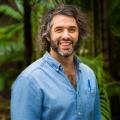Plenary Speakers
Anne Marie Albano, Ph.D., Columbia University
Anne Marie Albano is Professor of Medical Psychology in Psychiatry at Columbia University and Founder of the Columbia University Clinic for Anxiety and Related Disorders and Clinical Site Director of New York Presbyterian Hospital’s Youth Anxiety Center, and Executive Director of Modern Minds of Charleston, SC. She received her Ph.D. from the University of Mississippi. Dr. Albano is a Fellow of the American Psychological Association, Association for Behavioral and Cognitive Therapies (ABCT), Founding Fellow of the Academy of Cognitive Therapy, a Beck Institute Scholar, and is Board Certified in Clinical Child and Adolescent Psychology. She is the recipient of the 2015 ABCT Award for Outstanding Contributions by an Individual for Clinical Activities. Dr. Albano is a past President of the Society for Clinical Child and Adolescent Psychology of the American Psychological Association and also past-president of the Association for Behavioral and Cognitive Therapies (ABCT). She is past editor of Cognitive and Behavioral Practice and Associate Editor of the Journal of Consulting and Clinical Psychology. Dr. Albano was the inaugural editor of the journal “Evidence-Based Practice in Child and Adolescent Mental Health” published by the Society for Clinical Child and Adolescent Psychology. She has published more than 200 articles and chapters and is the co-author of several cognitive behavioral treatment manuals and of the Anxiety Disorders Interview Schedule for Children, all published by Oxford University Press. Dr. Albano served as a Principal Investigator of a 6-site, National Institute of Mental Health-sponsored study entitled “Child/Adolescent Anxiety Multimodal Treatment Study” (CAMS) and the Extended Long Term Follow Up of CAMS (CAMELS) and also was a PI for the Treatments for Adolescents with Depression Study (TADS) and the Substance Use Outcomes following TADS follow up trial (SOFTADS). These trials examined the relative efficacy and long term impact of CBT, medication, combination treatment, and pill placebo in youth. Her book with Leslie Pepper, You and Your Anxious Child: Free Your Child from Fears and Worries and Create a Joyful Family Life, was a 2014 ABCT Self-Help Book Award winner and 2014 Self-Help Book Award winner from the American Society of Journalists and Authors. In 2015, a new ABCT award was established in Dr. Albano’s name by a family to encourage the proliferation of evidence-based treatment, the Anne Marie Albano Early Career Award for Excellence in the Integration of Science and Practice.
Youth and the Transition to Adulthood: The Role of Context, Development, and Process-based Treatment
The developmental transition through early adulthood is a time of uncertainty and anxiety but also of optimism and growth. For youth with anxiety disorders, everyday tasks become insurmountable, resulting in a failure to achieve independent functioning. CBT and medication are effective treatments for anxiety in youth however, long-term remission through the transition to adulthood is not maintained for half of effectively treated youth, rendering risks for future mental health problems and long term dependency. Traditionally, symptom remission is the focus of treatment, with family context being minimally involved in empirical studies as well as in community-based care. In addition, developmental milestones and age-appropriate functioning has not been a primary target of treatment. And, the unique contextual features of the environments and situations experienced by youth calls for specific attention from therapists in delivering ecologically valid exposure and treatment goals that are meaningful and values-based for the youth. This talk will describe a novel model consistent with ACT and a process-oriented approach with an emphasis on novel components addressing development, parental “letting go” by engaging and addressing core beliefs and fears of the parents and their emerging adult child, and engaging youth in ecologically valid treatment.

Gerhard Andersson, Ph.D., Linköping University
Professor Gerhard Andersson, Ph.D. is full professor of Clinical Psychology at Linköping University, in the Department of Behavioural Sciences and Learning, and the Department of Biomedical and Clinical Sciences. Professor Andersson received his education at Uppsala University, Department of Psychology, and graduated in 1991 (M.Sc. Clinical Psychology). His first Ph.D. was in Clinical Psychology (1995), and his second Ph.D. was in Medicine, Otorhinolaryngology (2000). He did his post-doc at the Department of Psychology, University College, London (1996-1997), working with patients with dizziness and imbalance. In 2010 he completed a B.A. in Theology. He was guest professor and affiliated researcher at Karolinska Institutet in the Department of Clinical Neuroscience, Psychiatry between the years 2007-2020.
During his career Andersson has worked part-time with patients, mainly in audiology but for a period also in psychiatry. He has a part-time position as clinical psychologist at the Department of Audiology, Linköping University Hospital, as a member of the Tinnitus team.Dr Andersson is trained as a CBT therapist and has a license and graduate diploma as a psychotherapist (2005). He has also completed teaching and supervision training in cognitive and behavioural psychotherapy (2016). Professor Andersson has published over 710 research papers, 50 chapters and 20 books. His present h-index is 94 (Scopus; Web of science 86). In 2016, 2017, 2018, 2019 and 2020 Andersson was on the list of highly cited researchers. Also on Googles list on highly cited researchers.
Internet interventions in the era of a pandemic
It is clear that mental health problems have increased as a consequence of the COVID-19 pandemic. The specific problems across countries reflect their response to the pandemic with mental health problems, including the effects of social isolation (physical distancing), loss followed by disrupted grief ceremonies, loss or disruption to vocational, economic or educational opportunities, fear of additional outbreaks of COVID-19 and future post-corona mental health consequences even following vaccination. Recent studies indicate that service demands for psychiatric assessments and interventions have increased, while at the same time in person psychiatric visits for mild to moderate conditions have been advised against while partly being replaced with video-conferencing contacts. Internet-delivered cognitive behaviour therapy (ICBT) has existed for 20 years and there are now a large number of controlled trials for a range of problems. In this talk I will outline how ICBT can be of help and also present data from two controlled trials on psychological problems associated with the pandemic.
Joseph Ciarrochi, Ph.D., Australian Catholic University
Joseph Ciarrochi is professor at the Institute for Positive Psychology and Education, Australian Catholic University. He has published over 150 scientific journal articles and many books, including the best-selling Get out of your mind and into your life teens, and the influential book, Thriving Adolescent. His most recent youth book is out this year and is called Your Life Your Way. In the adult area, Joseph has published The Weight Escape, and Mindfulness, Acceptance, and Positive Psychology: The seven foundations of well-being, and Emotional intelligence: A practitioner’s guide. He has been honoured with over four million dollars in research funding. His work has been discussed on T.V., and in magazines, newspaper articles, and radio.
Nonattachment: Letting go, becoming free
Acceptance and Commitment Therapy has focused on reducing experiential avoidance, or what clinicians often call “away moves.” I argue ACT has under emphasised experiential attachment, or the downsides of “towards moves.” We define experiential attachment as attempts to cling to positive thoughts, feelings, and other internal experiences, even when doing so creates harm in the long run. One can cling to positive ideas about autonomy (clinging to the idea of “being strong” prompts bullying and job loss”), competence (clinging to the idea of being “a good parent” prompts neglect of self-care), and connectedness (clinging to the idea of “being liked” prompts chasing popularity and neglecting genuine relationships”). Each attachment offers an addictive substitute for genuine autonomy, competence, and connectedness needs.
We present evidence that experiential attachment and avoidance are not opposite sides of the same continuum. For example, the lust for power is not the fear of powerlessness. I hypothesize that experiential avoidance and acceptance need to be targeted by distinctive interventions, and conclude the talk with some concrete examples of how you can use ACT-based self and motivational interventions to undermine harmful attachments.

Dr. Coyne is the Founder and Senior Clinical Consultant of the McLean OCD Institute for Children and Adolescents at McLean Hospital, and is an Assistant Professor at Harvard Medical School. She is the Founder and Executive Director of the New England Center for OCD and Anxiety (NECOA) and was elected President of the Association of Contextual Behavioral Science (ACBS). She is member of the Clinical and Scientific Advisory Board and is on the Faculty of the Behavior Therapy Training Institute (BTTI) of the International OCD Foundation (IOCDF). She is also a licensed psychologist, a peer-reviewed ACT trainer, and author. She has authored multiple articles and chapters on ACT with children and adolescents, and is a co-author of the books Acceptance and Commitment Therapy: The Clinician’s Guide for Supporting Parents (Elsevier), and The Joy of Parenting (New Harbinger). Her new books, Stuff That’s Loud: A Teen’s Guide to Unspiralling When OCD Gets Noisy (New Harbinger & Little Brown), Stop Avoiding Stuff: 25 Microskills to Face Your Fears and Do It Anyway, were published in 2020.
Using CBS to Nurture a Just and Sustainable World
At a population size of nearly 8 billion, humans strain the resources of our planet. Our shared climate crisis affects us all – but it affects marginalized communities vulnerable to disparities in income, health, and education most immediately and most deeply. We cannot avert these unfolding catastrophes acting alone, as individuals. We are going to need all of our community’s compassion, wisdom, and innovation. Most of all, we will need the tools conferred by contextual behavioral science (CBS). The technology for behavior change offered by CBS is essential to inform best practices for shifting to a more sustainable and just world. It is time to scale up our science and capitalize on interdisciplinary collaborations such that we can address our behavioral impact on the climate. Where there is division, we can sow nurturance and justice; where there is disconnection with the natural world, we can make committed actions that will leave our home better than we found it for generations to come.

Jo Lloyd, Ph.D., Goldsmiths, University of London
Dr Jo Lloyd is a senior lecturer and researcher in psychology and management at Goldsmiths, University of London. She is also Head of Department for the Institute of Management Studies (IMS). Jo’s most recent line of research concerns understanding the interpersonal and structural antecedents of wellbeing and quality of life in different social groups. Work has focussed on marginalised minority groups (e.g., transgender and gender nonconforming people, sexual minority individuals) as well as larger social units/entities (e.g., dyads/couples, organisations, neighbourhoods). Jo’s other major line of research involves the application of Contextual Behavioural Science (CBS) theories to the prediction and enhancement of health and behavioural effectiveness. Work has focussed on the impact of acceptance and commitment therapy (ACT) informed psychological skills interventions across different applied settings and the development of new psychometric instruments to assess CBS processes in workplace, clinical and general life contexts. Jo is a Chartered Psychologist with the British Psychological Society (BPS) and a Registered Occupational Psychologist with the Health and Care Professions Council (HCPC). She is a member of Goldsmiths’ Wellbeing in Context interdisciplinary research stream, and lead researcher on the Quality of Life in Transgender and Gender Nonconforming People in England longitudinal cohort study. Jo regularly presents on her work in both UK and international academic conferences and is a frequent guest speaker at professional events.
Charting a path towards a just and caring future for transgender people: A CBS approach to addressing discrimination on interpersonal, institutional, and systemic levels
Transgender people are one of the most heavily marginalised social groups today, suffering pervasive discrimination on interpersonal, institutional, and systemic levels. This discrimination is a major contributing factor to the lower levels of physical and psychological health, and poorer life outcomes experienced by transgender people, relative to their cisgender counterparts. Contextual Behavioural Science (CBS) offers us concepts, models, and approaches to begin to understand and address this significant social justice issue at the different levels that it exists. At the same time, as we progress through these increasingly complex levels, the requirements and demands of research and practice become more challenging, and the need for professional, analytical, and disciplinary diversity more evident. The CBS community is well-positioned to meet this challenge. In our desire for multiple perspectives, penchant for research-practice synergies, and compassion for self and others, we find our strength of collective action and the possibilities for charting a path towards a just and caring future for transgender people.

Linda Steg, University of Groningen
Linda Steg is professor of environmental psychology at the University of Groningen. She studies factors influencing sustainable behaviour, the effects and acceptability of strategies aimed at promoting sustainable behaviour, and public perceptions of technology and system changes. She is member of Member of the Royal Netherlands Academy of Sciences (KNAW), and lead author of the IPCC special report on 1.5°C and AR6. She participates in various interdisciplinary and international research programmes, and collaborates with practitioners working in industry, governments and NGOs.
Changing behaviour to solve environmental problems
Many environmental problems can be reduced when people would more consistently engage in sustainable behaviour. Many approaches to encourage sustainable behaviour target extrinsic motivation, by offering incentives that change personal costs and benefits of behaviour. Yet, such approaches may not always be as effective as assumed. I will discuss factors and strategies that can foster intrinsic motivation to act pro-environmentally. Intrinsically motivated people behave without being coerced or incentivised, even when pro-environmental behaviour is somewhat costly, as doing so is meaningful and makes them feel good.
Invited Speakers

Joanna Arch, Ph.D., University of Colorado Boulder
Dr. Joanna Arch is an Associate Professor of Psychology and Neuroscience at the University of Colorado Boulder, Member in Cancer Prevention and Control at the University of Colorado Cancer Center, and a licensed clinical psychologist. Her research focuses on developing and evaluating interventions designed to address anxiety disorders as well as to improve well-being among adults with cancer, with a focus on mindfulness and acceptance-based interventions. Her work to date has resulted in research funding from the National Cancer Institute, National Institute of Nursing Research, American Cancer Society, and the Templeton Foundation.
ACT in the Context of Anxiety and Serious Disease
ACT involves a stance of opening up to human experience as it is—“the good, bad, and ugly”—and working skillfully, using behavioral science, to move toward meaning and connection no matter what shows up. An acceptance stance provides a strong foundation for dealing with perceived threats such as those experienced within anxiety disorders as well as the bodily and existential threats posed by diseases such as cancer. This invited talk will focus on the ways we have studied ACT in the context of people facing diverse forms of anxiety and threat, beginning with trials of ACT for anxiety disorders and shifting toward our trials of ACT with adults facing early- and late-stage cancer. Two intersections with this clinical research will be highlighted: First, the successes and challenges of embedding much of this work in community clinics, with interventions developed with and led by community clinicians; and second, the synergy of connecting clinical trials with laboratory-based investigations of relevant processes. I will reflect on what we continue to learn as scientists, as clinicians, and as human beings.

Andrew Christensen, Ph.D., University of California, Los Angeles
Dr. Andrew Christensen is a Distinguished Research Professor of Psychology at the University of California, Los Angeles, the co-creator of IBCT and co-author of the IBCT manual, Integrative Behavioral Couple Therapy: A Therapist's Guide to Creating Acceptance and Change (Norton, 2020). Since 2010 when the United States Department of Veteran’s Affairs adopted IBCT as one of its evidence-based treatments, he has been training VA clinicians in IBCT. Along with Dr. Brian Doss of the University of Miami, he developed the online program for couples, www.OurRelationship.com , which has been shown effective in three nationwide clinical trials.
The Challenge of Change in Couples: How Integrative Behavioral Couple Therapy brings about change and acceptance
Integrative Behavioral Couple Therapy (BCT) is an evidence-based intervention for couples. In this presentation, the co-developer of IBCT, Dr. Andrew Christensen, will present on IBCT strategies for bringing about change in the emotional tenor of relationships as well as change in specific problematic behaviors. He will show the link between individual approaches to change, which distinguish different stages and processes of change, and IBCT. He will also explain how the IBCT strategies of empathic joining and unified detachment can directly change the emotional tenor of the relationship and indirectly change specific behaviors. In addition, he will show how the IBCT strategies of Direct Change have a direct impact on specific behaviors but an indirect impact on the emotional tenor. Throughout, he will show how these IBCT strategies bring about emotional acceptance.

Kenneth Fung, M.D. FRCPC MSc, University of Toronto
Dr. Kenneth Fung is Staff Psychiatrist and Clinical Director of the Asian Initiative in Mental Health Program at the Toronto Western Hospital, University Health Network and Associate Professor with the Department of Psychiatry, University of Toronto. His research, teaching, and clinical interest include both cultural psychiatry and psychotherapy, especially Acceptance and Commitment Therapy (ACT), CBT, and mindfulness. He conducts community-based research in stigma, resilience, mental health promotion, trauma, caregivers for children with ASD, and immigrant and refugee mental health. He is psychiatric consultant to the Hong Fook Mental Health Association and Mon Sheong Scarborough Long-Term Care Centre. He is the President of the Society of the Study of Psychiatry and Culture, the immediate past chair of the Transcultural Section of the Canadian Psychiatric Association, and a Board Member of the World Association for Cultural Psychiatry. He is a past Chair and current officer and Historian of the Federation of Chinese American and Chinese Canadian Medical Societies. He is a past Chair of the Ontario Chapter of the Association of Contextual Behavioral Science (ACBS). He is a Distinguished Fellow of the Canadian Psychiatric Association, Fellow of the American Psychiatric Association, and Fellow of Association of Contextual Behavioral Science (ACBS). His awards include the 2015 Social Responsibility Award from the University of Toronto Faculty of Medicine; the 2016 American Psychiatric Association Foundation Award for Advancing Minority Health; the 2017 College of Physicians and Surgeons of Ontario Council Award; the 2018 Psychotherapy Award for Academic Excellence from University of Toronto; and the 2020 Colin Woolf Award For Sustained Excellence in Teaching; and the Canada 150 Medal.
Sociocultural, Diversity, and Equity Issues and ACT/CBS
Our sociocultural context invisibly influences and shapes our perception, experiences, and meaning making process. This presentation will examine ACT through a cultural lens, including its strengths and limitations. At the clinical level, this will increase our capacity to deliver ACT more effectively to diverse populations. Many of the problems that we face are beyond the scope of individual intervention. We will also explore how ACT can be used to address sociocultural issues for marginalized or vulnerable populations, advance social justice, and promote equity. This includes an example of an online pandemic intervention that builds individual resilience while integrating social justice principles and collective empowerment.

James Kirby, Ph.D., The University of Queensland
James is a Senior Lecturer, Clinical Psychologist and Co-Director of the Compassionate Mind Research Group at School of Psychology at The University of Queensland. James has broad research interests in compassion science. He evaluates compassion focused programs, as well what fears people have towards compassion, as well as behavioural and physiological responses to compassion. James also holds an Visiting Fellowship at the Center for Compassion and Altruism Research and Education at Stanford University. He continues to work as a clinical psychologist helping individuals with self-criticism and shame with Compassion Focused Therapy.
The complexities of compassion: What inhibits it and how we can help facilitate it
We all have a sense of what compassion is, how we have experienced it or even show it. But when you dig deeper into what compassion is it can start to become complex. For example, there are many contextual factors that can inhibit a compassionate response in an individual who has generally high trait levels of compassion. But what are those factors and can they be modified? This presentation will define what we mean by compassion, using an evolved model that underpins Compassion Focused Therapy. It will then present emerging research showing the bounds of our compassion in children and adults, and present possibilities to overcome some of these inhibitors. Finally, clinical work on how compassion can help with self-criticism and shame will be presented.

Dominika Kwasnicka, M.A., MSc, Ph.D., The University of Melbourne
Dominika Kwasnicka, PhD, is a Research Fellow in Digital Health at the Nossal Institute for Global Health, Melbourne School of Population and Global Health, at the University of Melbourne, funded by the NHMRC Centre for Research Excellence (CRE) in Digital Technology to Transform Chronic Disease Outcomes, Australia. She is also a Senior Research Fellow, Faculty of Psychology, at SWPS University of Social Sciences and Humanities, Wroclaw, funded by the Foundation for Polish Science, Poland.
She is a behavioural scientist who has diverse interests in health psychology, digital health and research methods focusing on individuals. She completed her Doctor of Philosophy degree in Health Psychology and Behavioural Medicine and Master of Science in Public Health and Health Services Research at Newcastle University, England. She trained in Scotland and England, then she worked on digital health projects at Curtin University and Central Queensland University, in Australia as well as collaborated broadly with European colleagues in Poland, the Netherlands, Germany, the UK and Finland. She leads Open Digital Health initiative that promotes reusing open digital health solutions across contexts and settings www.opendigitalhealth.org. She is also passionate about science translation and dissemination and is a leader of the Practical Health Psychology blog currently translated to 27 languages.
Personalizing digital health interventions applying N-of-1 methods
Theories of behaviour change and health behaviour change interventions are usually tested in conventional between-participant designs. However, most of these theories and interventions ultimately focus on within-participant change. This mismatch is fundamentally problematic. Appreciation of this is fuelling the growing interest in N-of-1/within-participant methods in behavioural medicine, yet there is currently a shortage of opportunities to learn about within-participant approaches.
The talk will include: (I) presentation of N-of-1 method (design overview, theory and basic principles); (II) introduction to observational N-of-1 studies and their practical application; (III) introduction to N-of-1 RCTs and their practical application; and (IV) general elaboration of key priorities (e.g., application, personalising behavioural interventions, data analysis, limitations of the design) and advantages and disadvantages of using this method.
WHY SHALL I ATTEND? Knowledge of how to employ N-of-1 methods enables researchers to capitalise on the recent technology development to design behavioural studies and interventions which are tailored to each individual. Using unobtrusive data capture such as wearables and smartphone sensors, combined with Ecological Momentary Assessment, allows to develop truly personalised treatments. We are therefore at an opportune time to expand our use of within-person designs to better understand health behaviour and to deliver precision behaviour change interventions.

Takashi Muto, Ph.D., Doshisha University
Takashi Muto, Ph.D. is a full professor and the Dean of the Department of Psychology at Doshisha University. An author of nearly 20 books and 200 scientific articles, his career has focused on behavior analysis of the nature of human language and cognition and the application of Acceptance and Commitment Therapy (ACT). He is the pioneer of Contextual Behavioral Science in Japan and the developer of the Japanese chapter of the Association for Contextual Behavioral Science (so-called ""ACT Japan"").
Dr. Muto is a fellow of the Association for Contextual Behavioral Science, and the president of the Japanese Association for Behavior Analysis (i.e., the Japanese branch of Association for Behavior Analysis International).
How to enjoy old age in super-aged society: A perspective of Contextual Behavioral Science. (超高齢化社会で老年期を楽しむ方法:文脈的行動科学からの観点)
"Aging society is now a global phenomenon. The United Nations’ World Population Prospects (2019) says that the number of persons aged 80 and above is going from 143 million to 426 million by 2050. And Japan has entered a “super-aged” society, with senior citizens aged 65 and above account for 28.7% of its population in 2020. The purpose of this invited address is to present some CBS researches and practices for problems such as ageism and dementia in Japan, “super-aged” society. My talk will have the following contents:
1) how to mitigate behavioral assimilation to age stereotypes, based on Hashimoto et al. (2020).
2) how to reduce the burden of caring for dementia and enhance the quality of life (QOL) in family caregivers, based on Muto (2015, 2016)
3) how to reduce BPSDs through contextual-behavioristic family-based intervention, based on Muto (2018, 2019).
(高齢化社会は,今や世界的な現象となっている。国連の「世界人口展望」(2019年)によると,80歳以上の人口は2050年には1億4,300万人から4億2,600万人になるという。そして,日本は2020年には,65歳以上の高齢者が人口の28.7%を占める「超高齢社会」となっている。この招待講演の目的は、日本の「超高齢社会」におけるエイジズムや認知症などの問題に対するCBSの研究と実践を紹介することにある。
私の講演は,以下のような内容を予定している。
1)年齢に対するステレオタイプによる行動同化をいかに緩和するか(Hashimoto et al., 2020)。
2)認知症の介護負担を軽減し、家族介護者のQOLをいかに高めるか(武藤, 2015, 2016)
3)文脈行動科学的な家族介入によってBPSDをいかに減らすか(武藤, 2018, 2019))"
_2.jpg)
Júlio De Rose, Ph.D., Universidade Federal de São Carlos
Professor of Psychology at Universidade Federal de São Carlos, Brazil, and Research Director of the National Institute for Science and Technology on Behavior, Cognition, and Teaching. Associate Editor of The Psychological Record.
How symbols control behavior: Implications for a contextual conception of culture
The influential anthropologist Clifford Geertz may come close to being a Contextual Behavioral Anthropologist. Geertz even points out that culture is a context within which behaviors, social events, institutions, can be described. Resorting to Gilbert Ryle, Geertz contains that this description should be "thick", which we might translate as a description that is functional, rather than topographic. In this "contextual" view, culture is conceived as a system of symbolic devices for controlling behavior. A limitation in this highly influential view of culture was the lack of knowledge about the processes of behavioral control by symbols. This led anthropologists influenced by Geertz to resort to Psychoanalysis for an explanation of how symbols might control behavior. With the recent advances of Behavior Analysis and Contextual Behavioral Science, we are in a much better position to explain how symbols do control behavior. This presentation will briefly review Geertz's conception of culture and the RFT approach to symbolic behavior. I will present recent research showing how transformation of functions lead symbols to control behavior. The presentation will end with tentative examples of how networks of symbolic relations control behavior at the social and cultural levels.

Kelly Wilson, Ph.D., University of Mississippi
Kelly G. Wilson, Ph.D., is a Professor Emeritus of Psychology at the University at Mississippi.
Linking Values to Other ACT Processes
ACT processes are sometimes taught using examples and exercises that highlight the particular process being taught. Having learned discrete exercises for acceptance, defusion, values, commitment, self, and present moment, clinicians sometimes struggle to put the “parts” of the model back together. However, in practice, the intermingling of processes can create synergies that amplify the impact of an intervention. In this workshop, I will offer a technical definition of values and examples of ways that clinicians can use all other ACT processes to enhance values work. Troubles encountered in values work are often related to difficulties with other processes. For example, a rigidly held story about self may inhibit values work, but that does not necessarily mean that we stop the values work. Instead, we can infuse values work with self-work, such as perspective taking. Other times, intentionally setting aside particular processes can facilitate values work. For example, values and committed action interventions are often presented side-by-side. But committed action, or even the possibility of impending committed action, can be frightening enough to stop values exploration. Setting committed action aside quite explicitly can free up values exploration. Examples will be offered that mix ACT processes singly and in combination with values work. The workshop will contain both behavioral analysis of the mechanics of the interventions and experiential elements that demonstrate the impact of integrating processes. Dr. Wilson will do live real-play demonstrations with workshop volunteers.


